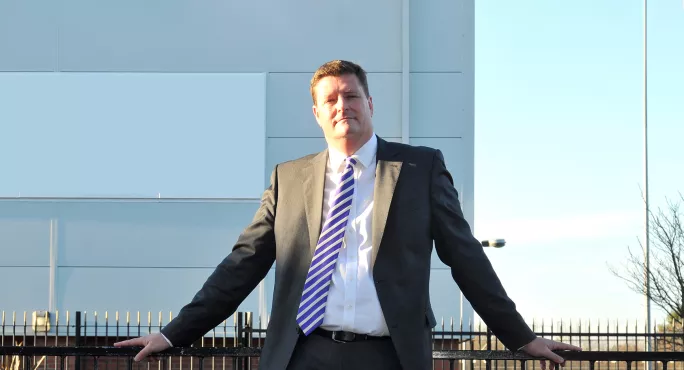Next Ofsted chief’s aims for the watchdog revealed

The Commons Education Select Committee has given its backing to the appointment of Sir Martyn Oliver as the next chief inspector of Ofsted.
As part of the confirmation, the committee has published Sir Martyn’s covering letter for the role, which contains a raft of insights into how he would want to take the organisation forward if appointed.
The letter provides a potentially illuminating insight into the future direction of Ofsted under Sir Martyn.
Sir Martyn Oliver’s Ofsted application: key insights
1. The job did not initially appeal
Sir Martyn opens his application with a bold gambit.
“I start this statement with an admission: This was not a role I have ever proactively considered.”
He then explains that he is “enormously fulfilled” as chief executive of Outwood Grange Academies Trust (OGAT) and committed to the work being done there. So what changed his mind then?
He says: “Because many system leaders have asked me to and, after reflecting on this for some time, I am now determined to make my best effort to secure this role and secure a strong future for Ofsted in raising standards for children everywhere.”
2. Achieving leadership buy-in
Sir Martyn also makes it clear that he is confident he can engage the sector in any direction in which he takes Ofsted.
“I am credible and can carry large parts of the profession with me.”
- Next Ofsted chief: MPs back Sir Martyn Oliver
- Sir Martyn Oliver: Who is Ofsted’s next chief inspector?
- DfE choice: Sir Martyn Oliver to be next Ofsted chief
Underscoring this, he lists his leadership credentials, both at OGAT and in other areas of the sector, too, such as initial teacher training, as a board member for the Office for Students (OfS), and previously as a trustee of the sector body the Confederation of School Trusts.
3. The need to change perceptions
In the letter, Sir Martyn is also upfront with those reviewing the application that Ofsted is not a universally loved agency.
“Ofsted has, in my opinion, gone from an organisation seen as combative to one now viewed as cold.”
To this point, he says the inspectorate must do more to be seen as “caring and compassionate” and recognise that while it must champion children as part of its core remit, it cannot overlook the fact that it is “the workforce on the ground, those who lead and work in schools, care homes and children’s services, who are the individual champions of children, too”.
This may be music to the ears of those who feel that Ofsted often ignores the reality faced by staff on the frontline in pursuit of outcomes that are unrealistic.
4. No new framework
One of the most prominent sections in the letter outlines Sir Martyn’s belief that the current Ofsted inspection framework does not need changing.
“I wish to be clear - the system does not need a new framework imposed upon it at this time.”
However, he says what does need to change is how that framework is interpreted by inspectors so that it “embed[s] what is good” but also addresses the “rapidly changing context that education is facing”, so judgments are seen as “valid...fair but also reliable, objective and empathetic.”
5. More serving leaders as inspectors
Following on from this, he says it is clear that more inspectors need to be drawn from existing pool of school leaders.
“The problems now facing the validity of some judgments can be overcome by creating an Ofsted workforce consisting of far more current serving leaders.”
He says this would be a “key priority” as it would help to make Ofsted a more “system-led, system co-designed inspector and regulator”.
Not only would this help to ensure that those inspecting settings bring their experience to the system, he says, it would also have the benefit of improving their own schools, too.
“I often hear about how good the inspector training is and it seems to me to be entirely sensible that this professional development of serving leaders should not only support inspections but also be used to raise standards in those leaders’ own institutions.”
6. Workload considerations
In what could also be welcome news for leaders and teachers, Sir Martyn’s letter sets out his recognition that any changes must consider workload.
“In respecting the workforce, there should never be a change made to the framework without a workload impact assessment.”
He also says any changes in inspection can only occur if there is confidence that those carrying out inspections are “capable of judging to the required standard” and also that they recognise the reality of the impact of trusts on the education system, which he says are “raising outcomes for children in England’s schools”.
7. Perceptions of Ofsted are a challenge
He admits in the letter that Ofsted has faced a tough time in recent months and years due to perceptions across the sector - and this may continue for some time.
“The challenges we face will lead to increasingly negative headlines for Ofsted.”
However, he says “an HMCI who has sufficient experience can navigate this”, and notes that within his own time in education he has attended over 65 inspections directly and been through another 31 as a trustee or mentor.
Dan Worth is senior analyst at Tes
You need a Tes subscription to read this article
Subscribe now to read this article and get other subscriber-only content:
- Unlimited access to all Tes magazine content
- Exclusive subscriber-only stories
- Award-winning email newsletters
Already a subscriber? Log in
You need a subscription to read this article
Subscribe now to read this article and get other subscriber-only content, including:
- Unlimited access to all Tes magazine content
- Exclusive subscriber-only stories
- Award-winning email newsletters
topics in this article



